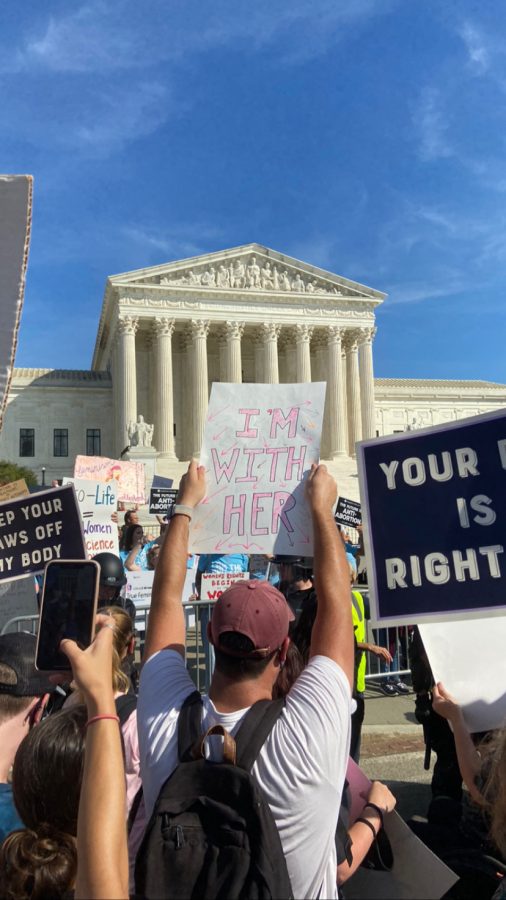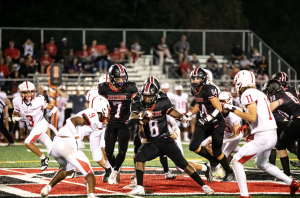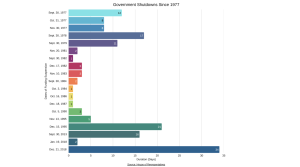Texas Abortion Law prompts Women’s March in DC
A protestor hold a “I’m With Her” in front of the US Supreme Court Building. The protest comes following the Supreme Court’s decision not to block a restrictive Texas law against abortion.
October 14, 2021
On Saturday, October 2, thousands of people gathered by Freedom Plaza in downtown Washington, D.C. and marched two miles to the Supreme Court to protest a recent Texas law banning most abortions.
The Women’s March organization led the protest with speeches from Alexis McGill Johnson, the CEO of Planned Parenthood.
The march began Saturday afternoon with thousands of protesters carrying unique signs depicting famous quotes, sayings, illustrations, and colors. The protesters marched along the tempo of a lively drum corps, which energized the protest, as it made its way down Pennsylvania Avenue towards the Supreme Court.
Protestors waved signs saying “keep laws off my body” and “abortions save lives.” Many were marked with the 1973, the year of the Supreme Court decision Roe v. Wade, which effectively legalized abortion nationwide.
With state legislatures such as Texas passing laws banning most abortions, Roe v. Wade is increasingly threatened nationwide. In September, the Supreme Court voted 5-4 that they would not block the Texas law.
As the protesters marched closer to the Supreme Court, police set up barricades to separate the women’s march protests and counter protesters. Tensions and noise levels increased with “shame on you” taunts launched from both sides of the barricades. Bullhorns blasted slogans like “Abortion hurts women,” matched with “our body our choice.”
Approaching the Supreme Court, the crowd of protesters grew as well as the exemplified feeling of seriousness. The chants grew louder and signs were displayed from the top of the crowd.
D.C. riot police lined the barriers, preventing an escalation of the verbal taunts into physical confrontations between opposing protesters.
At the time of publication District Judge Robert Pitman granted a request by the Biden administration to temporarily block any enforcement of the bill while it is being legally challenged. White House representative Jen Psaki said, “The fight has only begun, both in Texas and in many states across the country where women’s rights are currently under attack.”









